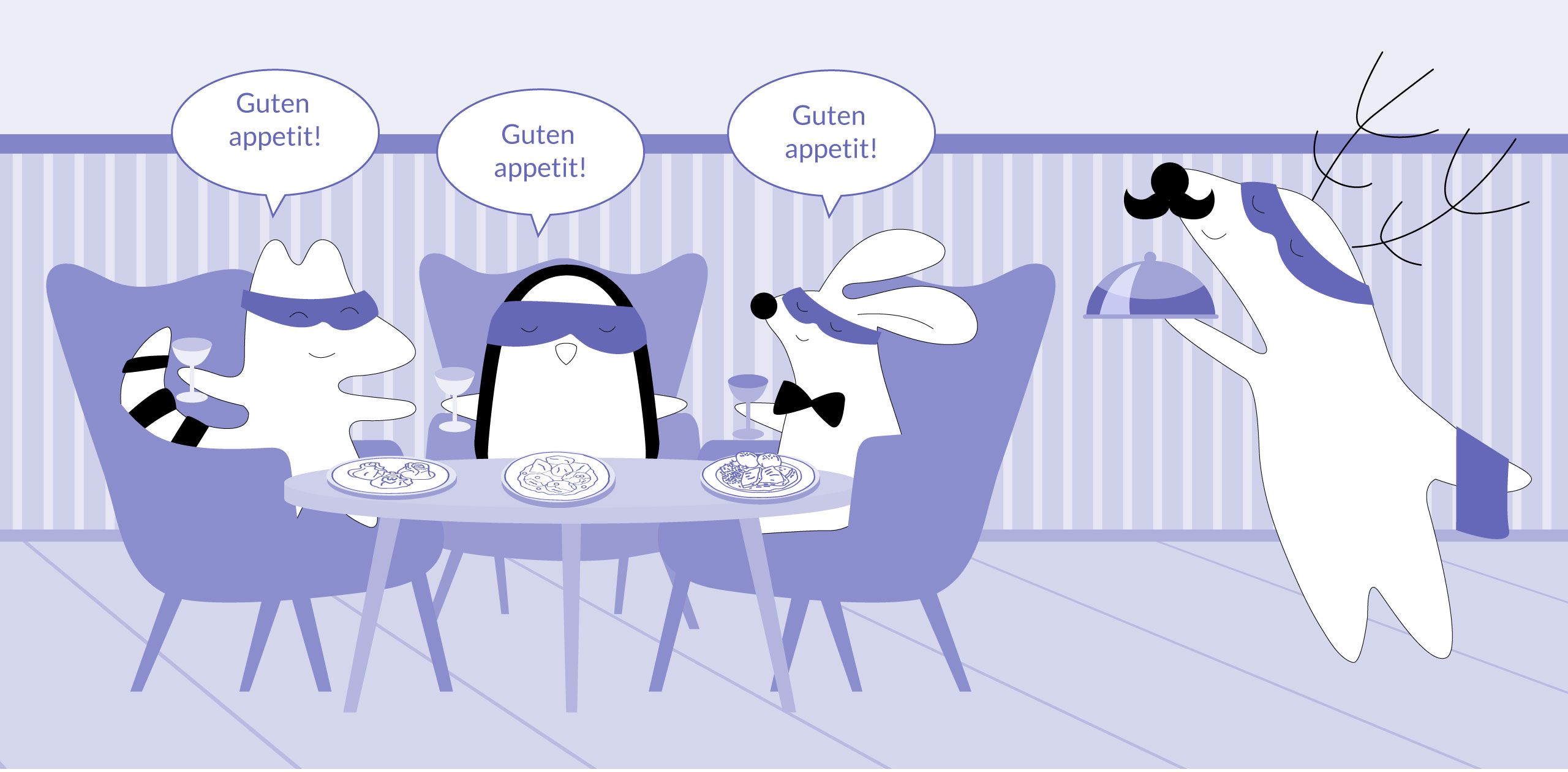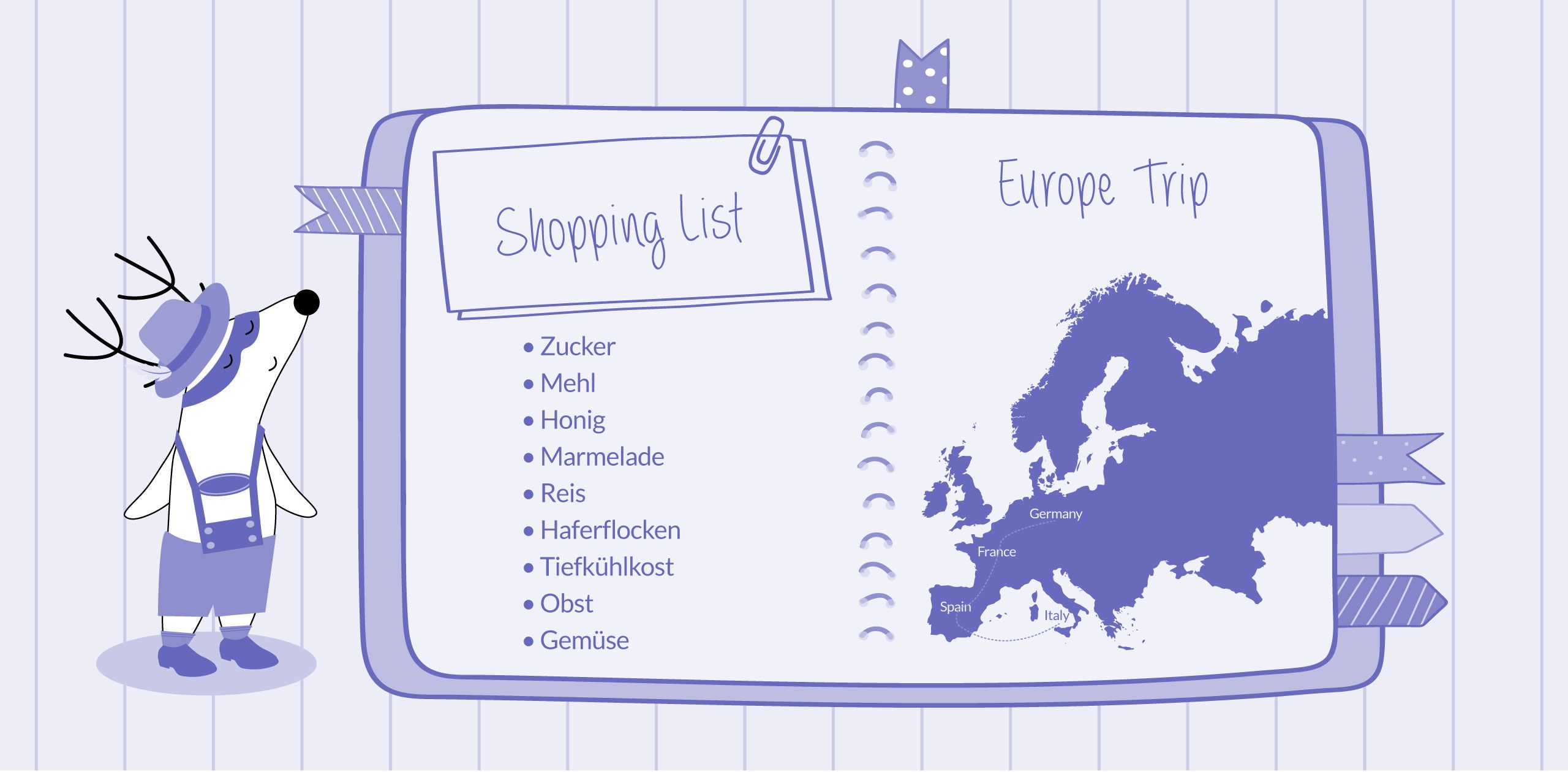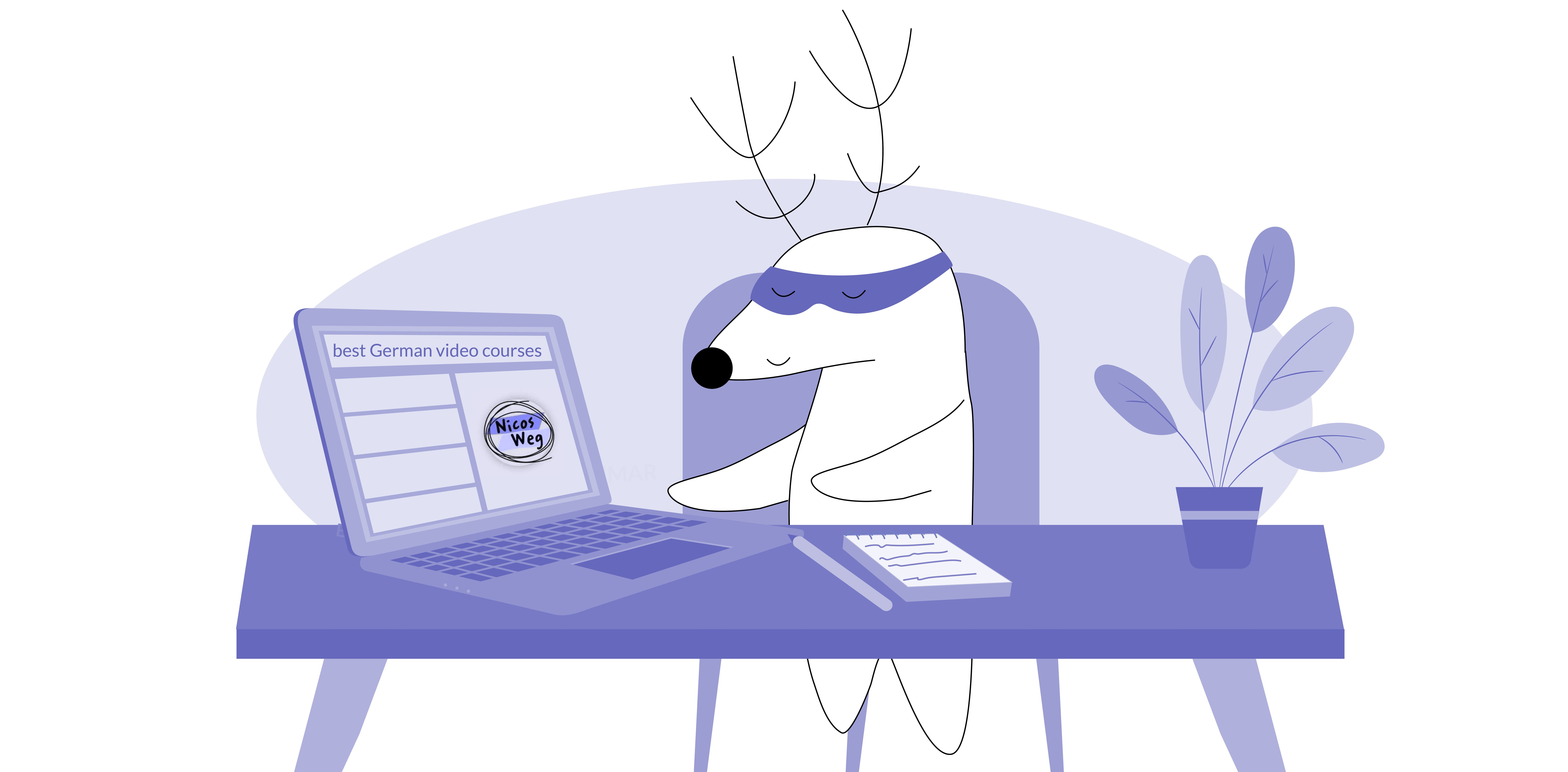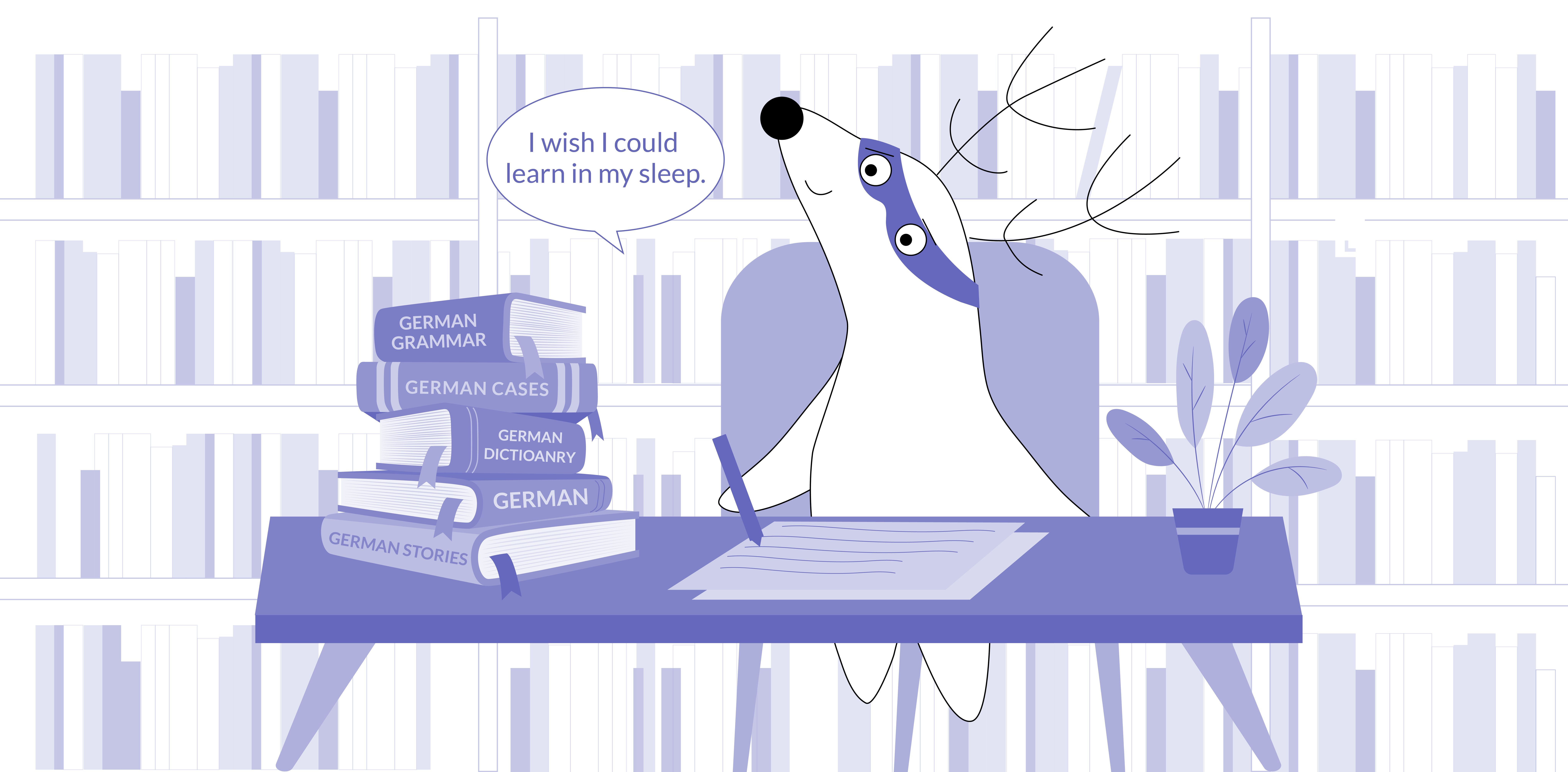
Imagine soaking up the intricacies of the German language as you drift into a peaceful slumber, effortlessly acquiring vocabulary and grammar rules in your sleep. Sounds like a dream come true, right?
Well, it's not just a figment of your imagination — learning while sleeping is a concept that has garnered much attention in recent years. In this article, we explore the benefits of sleep learning, delve into the science behind it, and offer tips on how to effectively learn German words and phrases while you catch some Z's.
Let’s get straight into it!
Learn German with Langster
Is It Possible to Learn a Foreign Language While Sleeping?
The process of sleep learning, also known as hypnopaedia, hinges on the relationship between sleep and memory consolidation.
Research has shown that non-rapid eye movement (non-REM) sleep, also known as dreamless sleep, plays a vital role in solidifying memories. It has been demonstrated that during the second stage of non-REM sleep, sleep spindles — sudden spikes in oscillatory brain activity visible on an electroencephalogram (EEG) — are instrumental in facilitating this memory consolidation.
In a study conducted by Scott Cairney from the University of York and Bernhard Staresina from the University of Birmingham, scientists were able to specifically target certain memories and reactivate or strengthen them using auditory cues.
However, the exact mechanism behind this phenomenon remained unclear, and whether such mechanisms could aid in memorizing new information was uncertain.
To investigate further, Cairney and his colleagues conducted an experiment involving 46 participants who were asked to learn associations between words and pictures of objects or scenes before taking a nap.
Some participants took a 90-minute nap, while others stayed awake. Half of the words were replayed during the nap for those who slept to trigger the reactivation of the newly learned picture memories.
Upon waking, participants were presented with the words again and asked to recall the associated object and scene pictures. The researchers found that memory recall was better for the pictures connected to the words presented during sleep compared to those that weren't.
By using an EEG machine, they also observed that playing the associated words to reactivate memories triggered sleep spindles in the participants' brains.
These groundbreaking scientific studies highlight the importance of sleep spindles in memory consolidation, offering evidence that sleep learning can indeed be a viable strategy for language acquisition, such as learning German.

Common Challenges of Sleep Learning & How to Overcome Them
While sleep learning offers an appealing approach to language acquisition, it is not without potential downsides.
One concern is that playing audio throughout the night could disrupt the quality of your sleep, ultimately hindering both your rest and learning progress. To mitigate this risk, experiment with different volume levels, and consider setting the audio to play during specific sleep cycles.
Other common challenges in sleep learning include difficulty retaining information and a lack of active practice. To address these issues, reinforce your nighttime lessons by reviewing the material during the day and engaging in active language practice through conversation or writing exercises.
It's crucial to remember that the practice of studying in your sleep should serve as a supplement rather than a substitute for the wakeful learning process. Mastering German will require a good deal of active, fully-conscious studying.
Listening to audio resources and authentic videos while asleep might improve your memory of German vocabulary, but it certainly won't make you fluent overnight.
To ensure the effectiveness of sleep learning, we advise you to review the material offered in sleep-learning audio resources when you're awake, and monitor your improvement. Note where you're still struggling, and try to emphasize the troublesome content more in your sleep-learning sessions. Then, assess any progress made the next day.
So, while sleep learning holds promise as a supplementary language acquisition method, it's important not to neglect traditional learning methods during your waking hours. After all, sleep learning won’t replace personalized language-learning lessons and the ability to speak German with a native speaker or fellow German learners.
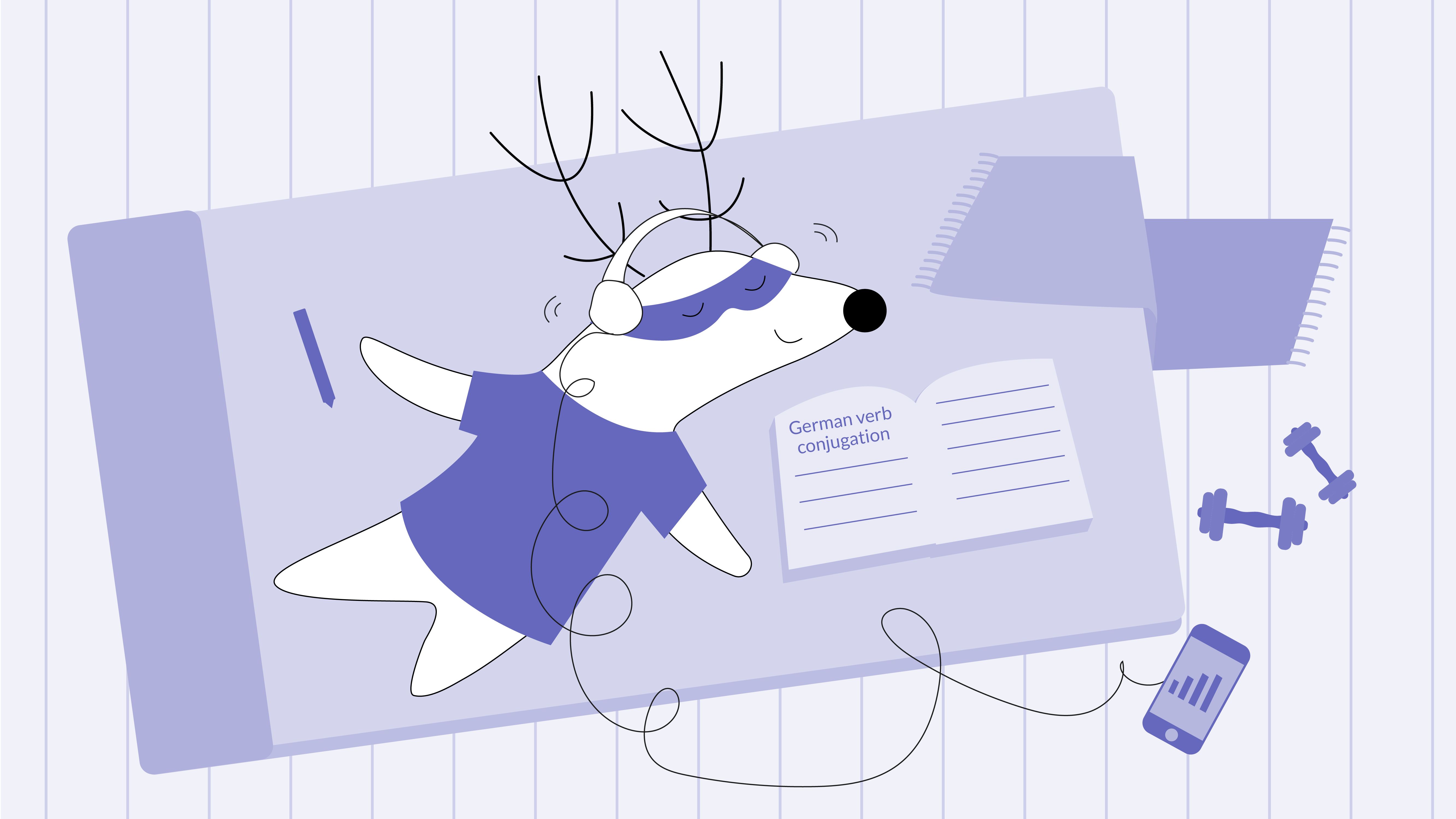
Tips for Effective German Sleep Learning
If you want to learn German while you sleep, you need to know how to do so properly. One of the most important factors is utilizing a variety of tools and resources that cater to different learning styles and preferences.
In this section, we take a closer look at some effective options for German students — both intermediate learners and absolute beginners:
- Employ sleep-learning apps. Explore apps specifically designed for learning German while you sleep, such as Pimsleur's German audio courses, 50 Languages, or vorleser.net. These apps combine engaging content with a suitable pace for nighttime learning, making them ideal companions for your sleep-learning sessions.
- Make podcasts a part of your bedtime routine. Boost your German language skills by listening to podcasts before you drift off to sleep. From real-life German conversations to structured, educational dialogues like Slow German or GermanPod101, podcasts offer diverse audio content that helps improve listening vocabulary, grammar skills, and pronunciation.
- Spend your late nights with YouTube videos. YouTube is home to numerous language-learning resources, with plenty of content aimed at German learners of different levels. Listen to YouTube channels such as Learn German, The Language Channel, or Einfach Deutsch when you're ready to hit the hay, as they provide an engaging way to passively absorb information like pronunciation and vocabulary. The best part? It’s free.
- Turn on audiobooks to fall asleep to. If you love learning with stories via our Langster app, you can also try listening to German audiobooks from sites like Audible or MosaLingua. This approach not only exposes you to proper pronunciation and new vocabulary but also immerses you in the nuances of the language and offers insights into German culture.
- Music! Listening to German music can help improve your accent, provide unique perspectives on German culture, and enhance your memory and listening skills. Songs can act as triggers for recalling German phrases and words that might otherwise be forgotten. Try listening to a variety of genres like rock (Rammstein), pop (Nena), or hip-hop (Deichkind), depending on your preference.
- Practice passive learning techniques. Don't hesitate to explore more passive learning methods, such as playing German learning games or watching cartoons and stories in German. These techniques are surprisingly effective and can be a fun addition to your language-learning routine.
- Create a conducive environment for sleep learning. Ensure your bedroom is dark, quiet, and comfortable, and consider using headphones or a pillow speaker to minimize disturbances to others.
To maximize the effectiveness of your sleep learning efforts, remember to pair it with other language-learning methods, such as attending classes or speaking German with native speakers during your waking hours.

By doing so, you can create a well-rounded and effective approach to mastering German that capitalizes on both sleep learning and traditional study methods.
The Bottom Line

Sleep learning presents a unique opportunity for those seeking an effortless approach to language acquisition. By leveraging the power of memory consolidation during sleep, you can potentially expedite your progress toward German fluency. While there may be some challenges along the way, incorporating sleep learning into your language study routine could prove to be a game-changer.
So, why not give it a try? As you tuck yourself in tonight, slip on those headphones, and let the sweet sounds of German lull you into a world of linguistic mastery. Sweet dreams and viel Glück on your language-learning journey!
Learn German with Langster







